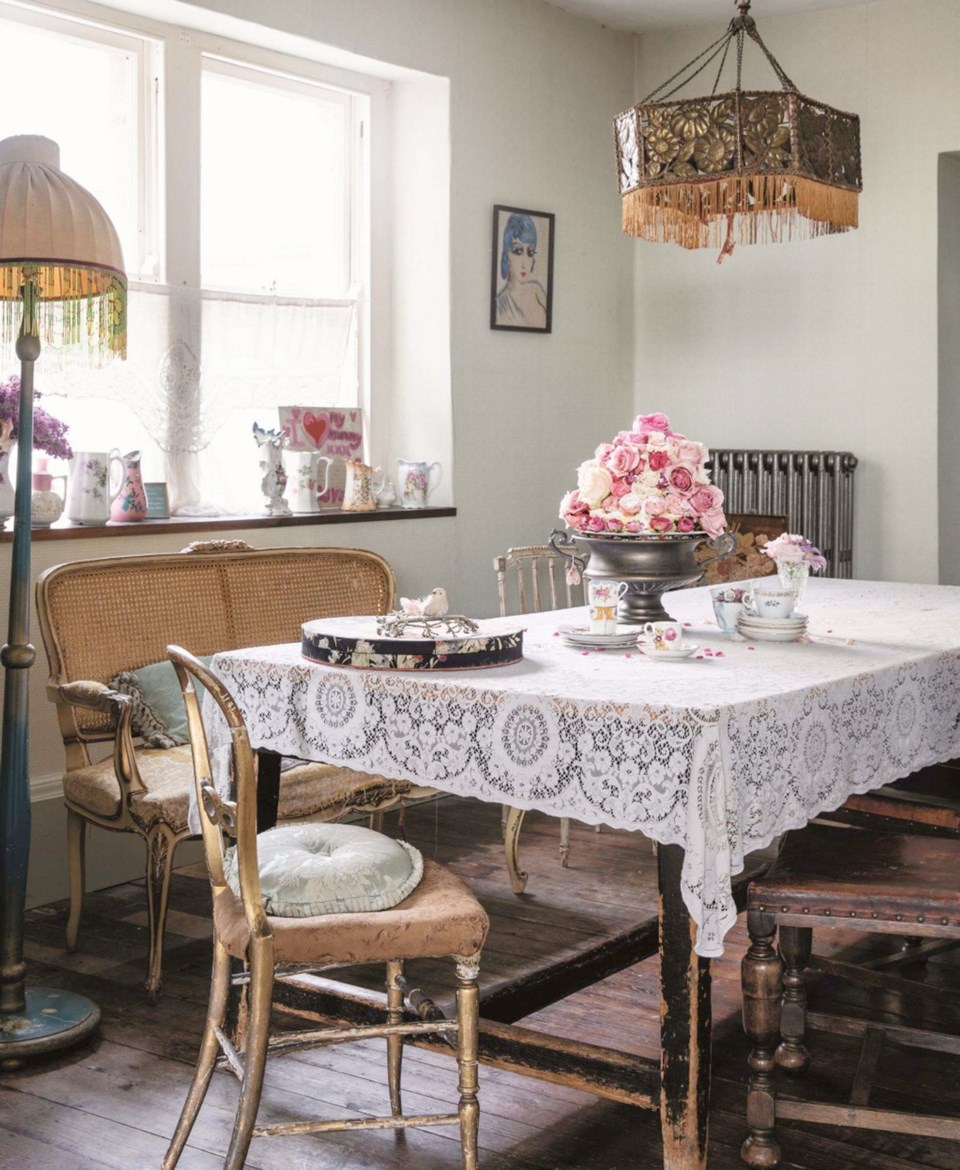There is something special about lace. This alluring fabric with its intricate stitching and airy patterns is a favourite in both traditional and modern fashion. It’s never out of style and enriches the appearance of whomever or whatever it covers.
In home decoration, a touch of lace has the ability to conjure up romance and nostalgia.
The word lace dates back to Middle English and Latin, loosely translated as “to snare or entice.” It’s a fitting description and perhaps the intention of the spider-web patterns that capture the imaginations of those who see it, wear it or decorate with it.
In the late 16th century, lace became dominant in fashion and home decor. In 1840, Britain’s Queen Victoria was married in lace, beginning a tradition that continues today.
Lace is a delicate fabric that can be made by hand or machine. The open pattern consists of a series of webs strung together originally using threads of linen, silk, gold or silver.
Most common today is lace that is manufactured with cotton or synthetic threads. Lacy style can be directed to any room — kitchen windows, dining-room tables, bedcovers, lampshades, cushions and any type of furniture covering.
In the introduction to her newest book, Faded Glamour: Inspirational Interiors and Beautiful Homes, author Pearl Lowe talks about her passion for vintage textiles and her love of lace.
“Silks and velvets add a sense of sophistication regardless how worn or faded they may be. Carpets and rugs give colour and warmth even if a little threadbare. Chintz takes me back in time and animal prints make me smile,” she says.
When asked to pick one textile above all others, Lowe chooses lace. “A piece of lace, no matter how small, conjures up a sense of history and sheer romanticism.”
Lowe is a singer/songwriter whose love of vintage interiors and fashion led to her signature range of lace curtains and cushions and bespoke handmade dresses. (pearllowe.com)
Faded Glamour takes you on a journey through beautiful homes that show creative spaces that are not just decadent and stylish, but deliciously inviting and comfortable.
A white lace tablecloth might herald the arrival of a special evening, or be just as suitable in a country kitchen breakfast room. Lace speaks to all occasions.
The author’s love of laces and fringes is evident in her Georgian style home, which is featured in the book. The tablecloth was found at a flea market, the chairs and cushions are from a local antique shop, and fringed lamp shades enhance the vintage style.
The feeling in the room is quietly comforting and inviting, bearing witness to years of shared meals and conversation.
Reusing and repurposing textiles connects us with the past and memories of lives lived.
Hunt down fabulous finds in antique shops and secondhand stores and rummage through your grandmother’s attic. Look for old shawls and tablecloths, scarves, handkerchiefs and trims. Set up a captivating bedroom vignette, as featured in Lowe’s book, dressing the bed with a lace bedspread, a fur throw and velvet cushions. To add to the opulence of the room Lowe added a 1920s screen.
Written by Debbie Travis and Barbara Dingle. Please email decorating questions to house2home@debbietravis.com. Follow Debbie at instagram.com/debbie_travis, facebook.com/thedebbietravis, debbietravis.com.



